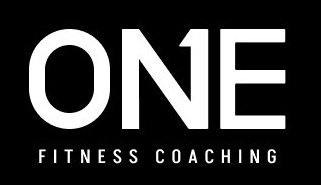How to Track Fitness Progress with Assessments?
Regular on your daily workouts, but don't know how much you are progressing or even improving or not? Relax, you are not alone here. Some workout improvements are visible in your body shape and weight, but some are not, and here you have fitness assessments. Fitness assessments are like a guide that will help you to see or assess your progress. Measure your strength and endurance then plan for future workout sessions.
Let's Understand What a Fitness Assessment is.
A fitness assessment is like a map of your journey of fitness. It measures things like your strength, how long you should exercise, and your flexibility. This helps you see where you are now, how much you are improving, and how much more you can plan.
Keep yourself motivated and accountable for all the drops of sweat you are dripping during workouts with fitness assessments. After the fitness assessment, a personal trainer in Poole will guide you to adjust your workouts, find potential risks, and stay on track with your fitness goals so you can celebrate every little step of progress.
Types Of Fitness Assessments
Physical Assessment
Understand the current state or, say, fitness of your body with physical assessment. They include:
Body Composition: It checks on you whether you should build muscle or lose fat. This looks at how much fat and muscle you have.
Flexibility: Make your movements smoother and injury-less with the flexibility of your body. This test shows how far your joints can move.
Strength: Check on your strength and how much weight you can lift. It is important for your daily life and overall health.
Endurance: Good endurance helps with many activities and exercises. This checks how long your muscles can keep working without getting tired.
Performance Assessments
How well is your body working under various conditions? Check with performance assessments. They include:
Cardiovascular Fitness: Common tests are running and cycling. Keep a check on your heartbeat and lungs functioning during exercise.
Strength Tests: You can lift weight, but for how many times and how much this must be tracked down. Are your muscles making progress in lifting? Check its strength.
Agility Tests: Agility is key for sports and quick actions. These check how quickly and effectively you can move or change directions.
Functional Assessments
Check how well you can handle daily tasks and movement with functional assessments. They include:
Daily Activity Performance: How well do you manage everyday tasks like carrying groceries or climbing stairs? It makes sure you can do these things easily.
Movement Quality: This looks at how smoothly and correctly you move. It checks your posture, balance, and coordination. Good movement quality helps you avoid injuries and stay healthy.
Setting Clear Fitness Goals
For an effective and satisfying fitness journey, clear, definite goals are crucial. You can focus better on your efforts and track your progress when your goals are specific. Specific goals make your fitness assessments more meaningful. Your aim is to lose weight, gain muscle, increase endurance, or do anything else. Having clear goals allows you to assess your progress in those specific areas. Making it easier for you to stay motivated in that particular direction.
The SMART framework helps create good goals:
Specific: Be specific with what you want to do, like "run a 5K in 30 minutes."
Measurable: You should make sure you can track your progress, like "lose 10 pounds in 3 months."
Achievable: Be realistic and set goals that you can reach, like "add 20 pounds to my squat in 2 months."
Relevant: You must choose goals that fit with your overall fitness plan, like doing more cardio for better heart health.
Time-bound: Tick-tock, a deadline keeps you on pace. Give yourself a deadline, like "improve flexibility by the end of the year."
Examples
For a particular goal, there is a particular fitness assessment. Check out below for examples:
Working on Gaining Muscle Mass: Track muscle growth over time with body composition tests.
Want to Improve Cardiovascular Endurance: Measure your endurance with timed runs or VO2 max tests.
Work on Flexibility: Check your flexibility progress with sit-and-reach tests.
Want to Boost Strength: Measure how much stronger you're getting with push-up or squat tests.
Adapting You Fitness Plan Based on Assessments
Adjusting Your Workouts: Modify your workouts based on your assessment results. If you're getting stronger, increase the weight you lift. If you need to improve flexibility, add more stretches. Adjust your workouts with your well-organized trainer and ensure that you are working on areas that speak for improvement.
Make New Goals: Once you've achieved your first goal, set a new one. This new one will keep you motivated on the journey of fitness. For example, if you've improved your running time, try running farther or faster next.
Tracking Progress Over Time: Repeat your assessments regularly to track your progress. This helps you see your improvements and stay motivated. Record your results in a journal or app to monitor how well you're doing and celebrate your successes.
Do Fitness Assessment Today!
If you are hardwired towards your journey of fitness, then regular fitness assessment is not an option; it is compulsory. Keep modifying your plan and improving your fitness with the results you get after every assessment. This must be the plan, and to follow this plan, personal training at Bournemouth can be a big help.
Kieran Birch, a fitness professional, believes that fitness is not about physical transformation. It is about healthy transformation. A plan must be amended and moulded as per the need without hindering the end goal and compromising health. That's why he develops every plan for you considering your progress and keeping in mind your end goal, it's like personalizing at every step. Talk to him, and you will know.

